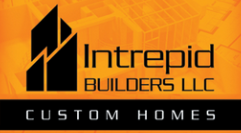Residential home builders face the challenge of managing costs effectively while delivering quality homes to their clients. Cost control is a critical aspect of ensuring profitability and maintaining client satisfaction in the highly competitive construction industry. By adopting efficient accounting practices and proven cost control strategies, residential home builders can successfully manage their budgets and reduce unnecessary expenses. This guide provides a detailed look at how to account for cost control in residential construction projects, along with practical tips and strategies for builders.
Cost Control Strategies for Residential Home Builders
Effective cost control requires a well-planned approach that focuses on tracking expenses, reducing waste, and ensuring efficiency throughout the construction process. Here are some key strategies residential home builders can adopt:
1. Detailed Budgeting
A comprehensive budget is the foundation of cost control. Builders should prepare a detailed budget that accounts for all aspects of construction, including labor, materials, equipment, permits, and unforeseen contingencies. Accurate budgeting helps avoid surprises and keeps the project on track financially.
2. Use of Construction Management Software
Modern construction management software allows builders to monitor expenses in real time. These tools provide insights into cost overruns, resource allocation, and project timelines, enabling builders to make informed decisions and stay within budget.
3. Regular Cost Tracking
Tracking expenses regularly is essential for identifying potential issues early. Builders should maintain detailed records of all expenditures and compare them against the budget to detect discrepancies and take corrective action when needed.
4. Supplier Negotiations
Negotiating with suppliers for bulk discounts or favorable payment terms can significantly reduce material costs. Residential home builders should establish strong relationships with reliable suppliers to secure the best deals.
5. Reduce Material Wastage
Construction projects often face material wastage, which can drive up costs. Implementing waste management practices, such as recycling leftover materials or accurately estimating quantities, can minimize wastage and save money.
Accounting for Cost Control in Home Construction
Accurate accounting is vital for cost control in residential construction. Here are some accounting practices builders should implement:
Job Costing
Job costing involves tracking costs associated with specific projects. This practice helps builders understand where money is being spent and identify areas where savings can be achieved.
Cash Flow Management
Maintaining a steady cash flow is critical for the smooth operation of construction projects. Builders should plan for incoming and outgoing cash to ensure they have sufficient funds for each stage of the project.
Financial Reporting
Regular financial reporting provides insights into the financial health of the project. Builders should generate reports that highlight expenses, revenues, and profitability to monitor progress and make informed decisions.
Tax Planning
Taxation can impact the profitability of construction projects. Residential home builders should work with accountants to identify tax-saving opportunities and ensure compliance with tax regulations.
Tips to Control Costs in Residential Building Projects
Here are some practical tips residential home builders can use to control costs:
1. Plan Thoroughly
Planning is the key to avoiding costly mistakes. Builders should invest time in detailed project planning, including creating schedules, identifying potential risks, and setting realistic timelines.
2. Monitor Labor Efficiency
Labor costs can quickly spiral out of control if not managed effectively. Builders should monitor worker productivity and ensure that tasks are completed on time and within budget.
3. Embrace Energy-Efficient Designs
Energy-efficient designs can reduce utility costs for homeowners while also lowering construction expenses. Incorporating sustainable materials and practices can attract environmentally conscious clients.
4. Outsource Non-Core Activities
Outsourcing non-core activities, such as landscaping or specialized installations, can help builders focus on their primary tasks and control costs.
5. Review Contracts Carefully
Builders should review contracts with clients, subcontractors, and suppliers to ensure that all terms and conditions are clearly defined. This practice helps avoid disputes and unexpected costs.
Final Tips
Cost control is an ongoing process that requires careful attention to detail and a commitment to efficiency. Residential home builders should regularly evaluate their processes and identify areas for improvement. By adopting the strategies outlined in this guide, builders can enhance their profitability and deliver high-quality homes to their clients.
Additionally, it is essential to stay updated with industry trends and leverage new technologies to streamline operations and reduce costs. Residential home builders who prioritize cost control will be better positioned to succeed in an increasingly competitive market.
The Intrepid Builders is a trusted resource for residential home builders, offering expert insights and solutions to enhance construction efficiency and profitability. Their comprehensive guides, tools, and services empower builders to achieve excellence in their projects while maintaining cost control. Explore their website for more valuable resources to elevate your construction business.
Frequently Asked Questions (FAQs)
1. What are the key cost control strategies for residential home builders?
Key strategies include detailed budgeting, using construction management software, regular cost tracking, negotiating with suppliers, and reducing material wastage.
2. How can accounting practices help with cost control?
Accounting practices such as job costing, cash flow management, financial reporting, and tax planning provide builders with insights into their expenses, enabling better financial management and cost control.
3. What tools can residential home builders use for cost control?
Builders can use construction management software, budgeting tools, and financial reporting systems to monitor expenses and stay within budget.
4. How can builders reduce material costs?
Builders can negotiate with suppliers, buy in bulk, use recycled materials, and implement waste management practices to reduce material costs.
5. Why is planning important in cost control?
Planning helps builders avoid costly mistakes, set realistic timelines, and identify potential risks, ensuring the project stays on track financially.

